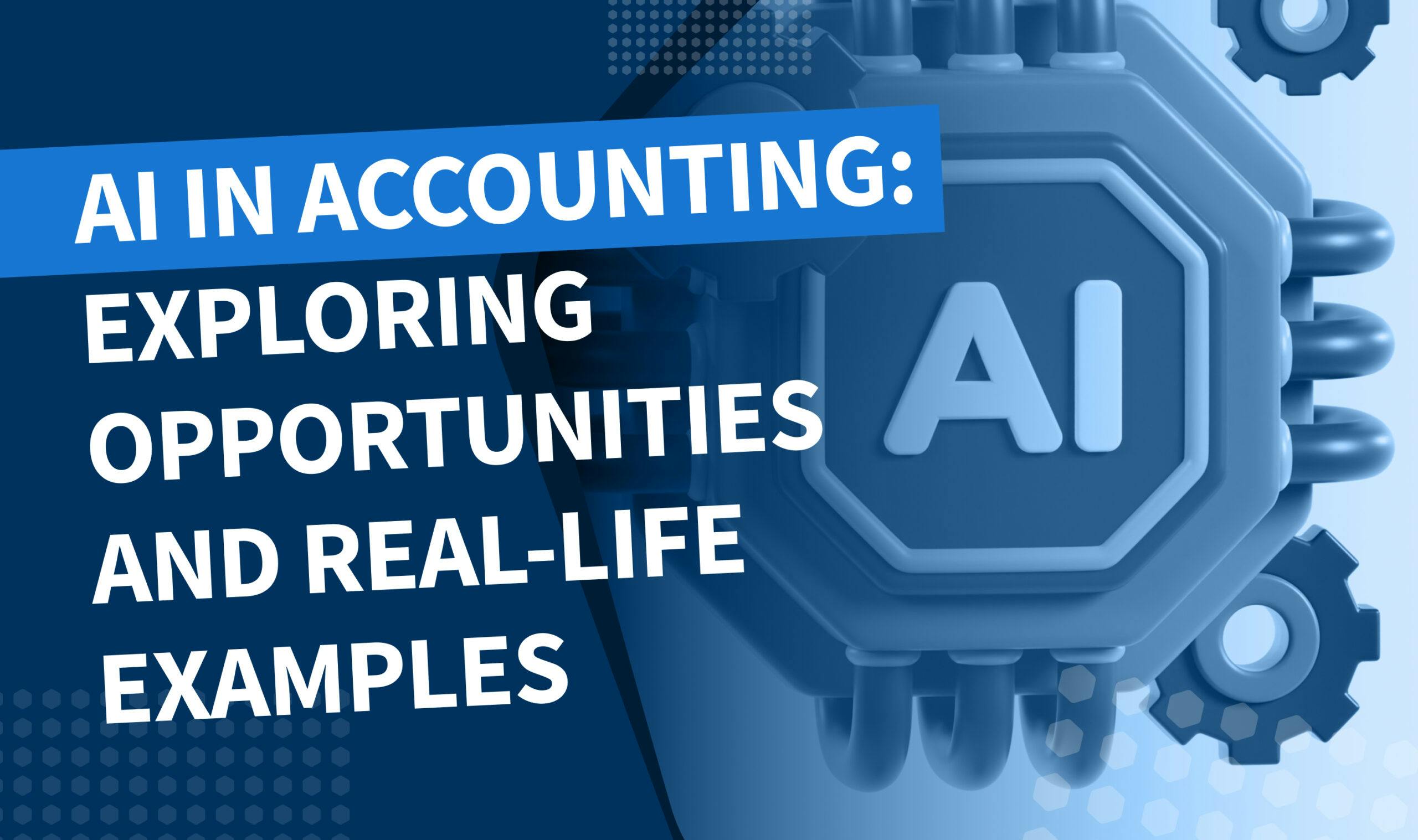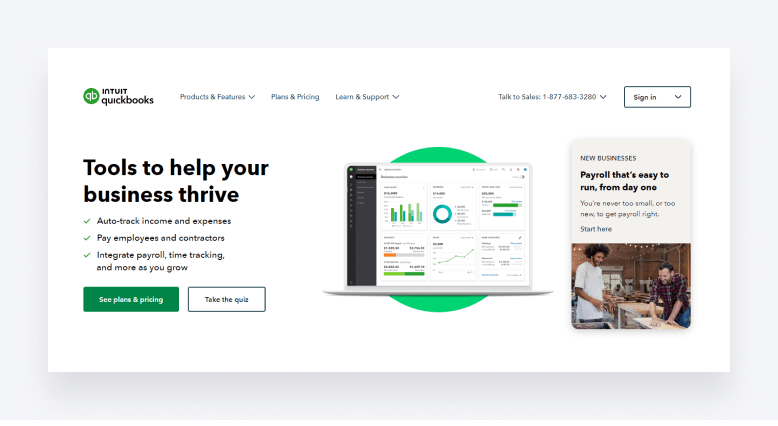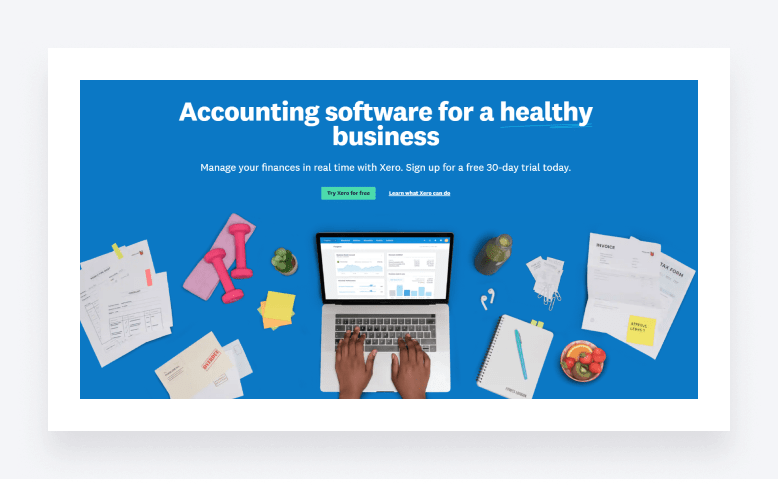
Artificial intelligence has been a hot topic for years, but 2023 will forever be remembered as the year it hit the mainstream. What was once a futuristic idea is now a present reality, with 55% of organizations already using AI in at least one business function.
While AI looks set to impact most areas of business, some industries — like accounting — are particularly ripe for transformation.
In this article, we’ll discuss the increasing influence of AI in accounting, looking at some real-life examples of how AI-based tools are changing the way accountants operate.
But before we dive in, let’s first define what we’re talking about.
What is AI in accounting?
AI is a machine’s ability to simulate human intelligence. Before AI, technology could be programmed to perform certain tasks based on simple inputs and outputs. But with the advent of AI, machines can now synthesize information, self-improve and solve complex problems — just like humans.
In accounting, AI can be used to automate, enhance and streamline all manner of processes — everything from basic repetitive tasks to complex workflows.
AI itself is a broad term comprising various subsets. Let’s look at some key examples and how they might be used in the context of accounting.
- Machine learning (ML): A process whereby an AI learns by analyzing large data sets and spotting patterns. In accounting, ML could be applied in the field of fraud detection, where it could be trained to spot unusual or suspicious activities.
- Natural language processing (NLP): A process that enables an AI to understand and generate human language, either in spoken or text form. NLP-powered chatbots can be used to engage accounting leads, answer client questions, or gather important tax documents.
- Predictive analytics: A process whereby an AI uses historical and current data to spot trends, forecast future outcomes, and identify potential risks. In accounting, predictive analytics can be used in cash flow forecasting, budgeting, and financial planning.
The impact of artificial intelligence on accounting
AI-powered tools help accountants to do more with less, allowing them to achieve levels of efficiency and accuracy that were once unimaginable.
And in a world where 82% of businesses fail due to poor cash flow management, it’s easy to see why AI in accounting is forecast to have a compound annual growth rate of 30% over the coming years.
Here are some examples of how AI is unlocking value for accountants:
- Automating repetitive tasks: With AI handling mundane administrative tasks such as data entry, invoice processing, and account reconciliation, accountants are freed up to focus on delivering real value to their clients
- Improving data accuracy: Automating data processing all but eliminates the risk of human error — and as we all know, small mistakes in accounting can be extremely costly
- Data-driven insights: Accountants now have access to real-time data that can help them make smarter strategic decisions, and predictive analytics that can help them see around corners
- A superior client experience: AI allows accountants to understand their clients’ needs like never before, enabling them to provide a more personalized client experience across all touchpoints
Together, these benefits result in one thing: a more successful and profitable accounting business.
Exploring popular AI accounting software
AI is still a relatively nascent technology, but it’s already making a huge impact on the accounting world. In this section, we’ll look at three of the best AI-powered accounting software out there.
1. TaxDome

Our award-winning practice management software combines a broad range of features designed to streamline, automate, and enhance your accounting workflows. This includes our newly released reporting feature, which allows you to transform your data held in TaxDome into powerful real-time insights.
The reporting feature also includes an AI-powered search tool that leverages NLP to interpret human inputs and respond with relevant data insights.
So, for example, if you type in “income from bookkeeping services in Q1 2024”, the AI will search for relevant metrics and data visualizations, allowing you to access insights and build tailored reports rapidly. What’s more, the AI continues to improve over time based on your feedback.
2. QuickBooks

The market-leading accounting software for small businesses, QuickBooks has leveraged automation for years now. But in 2023, Intuit — the company behind QuickBooks — decided to go “all in” on AI. They now have over two million personalized machine-learning models.
So what does that mean in practice? Well, QuickBooks offers a range of AI-powered features. For example, you get:
- Accurate cash-flow predictions and forecasting without lifting a finger
- Automated expense and transaction categorization
- An AI-powered receipt scanner that automatically extracts information and links it to an existing expense or account
And that’s just scratching the surface.
AI also plays a central role in the delivery of QuickBooks services. For example, AI algorithms automatically calculate funding options for small businesses through QuickBooks Capital, while AI models partner businesses with the right accounting experts.
3. Xero

Xero is another big-hitter in the small-business accounting world. And just like QuickBooks, they have been keen to embrace AI over the years. As Xero’s Executive General Manager of Data Kendra Vant put it in a recent blog post:
“When used well, AI can create a magical ‘whole is greater than the sum of its parts’ experience, where humans and AI work in close partnership and accomplish things faster and with less effort.”
Here are some examples of how Xero infuses its accounting software with AI:
- ML-powered bank reconciliation predictions
- Analytics Plus — a suite of AI-powered forecasting tools
- Automated text classification
- Automated entity recognition
- Automated form-filling
To explore some of the best AI-powered accounting software options in more detail, check out our article: 9 best AI software solutions for accounting in 2024.
How to use AI in accounting: real-life examples
We’ve discussed how AI can be used in accounting in theory. Now, let’s look at some real-world use cases from some of the biggest accounting firms in the world — and the impact they’ve had on accounting processes.
1. Deloitte: automating the document review process
Accountants typically spend a lot of time reviewing client documents. This process can be a major drain on resources. Big-Four accounting firm Deloitte built an AI-powered document review platform designed to liberate accountants from this tedious and time-consuming work.
The platform combines cognitive technologies, ML, and NLP to interpret language, recognize patterns, and identify key information. In practice, it has enabled the Deloitte team to process documents faster and more accurately, allowing them to increase their contract review capacity by “multiple orders of magnitude.”
2. PwC: improving audit accuracy with AI-based fraud detection
From Enron to Lehman Brothers, history books are littered with examples of high-profile accounting scandals. Given the complexity and scope of corporate accounting, spotting when a company is cooking the books has traditionally been tricky. But with the advent of AI, all that has changed.
Enter PwC and their innovative bot GL.ai. Powered by machine learning, GL.ai can analyze billions of data points in the blink of an eye. Its algorithm then spots discrepancies among the data that the human eye would likely miss. The result is a faster, more accurate audit process.
3. KPMG: intelligent forecasting using AI
Every business wants to know what the future holds, and accounting firms are no different. The ability to accurately predict future trends is essentially a cheat code when it comes to making smarter strategic decisions.
Until fairly recently, predicting the future amounted to guess work based on the experience and intuition of humans. But thanks to AI, we can now unlock data-driven insights into future trends and risks.
KPMG’s Intelligent Forecasting is one such example. Combining predictive modeling and advanced analytics, it helps accountants take a more proactive approach to planning, budgeting, and forecasting.
The vital role of upskilling accountants
With the role of AI in accounting growing by the day, you may be wondering what role human accountants have to play. Well, the good news is that the machines aren’t here to replace you. They’re here to augment you.
But to work effectively alongside their AI counterparts, accountants will have to adapt and learn new skills — and fast.
First of all, accountants will need to know how to maximize the value of AI-based tools. And with AI increasingly handling the repetitive administrative tasks that once took up so much time, accountants will have to focus on developing valuable soft skills, such as:
- Interpreting AI-based insights
- Making strategic decisions
- Providing personalized advice
- Understanding and communicating the nuances of the accounting industry
To manage this shift, accounting firms will need to invest time and money in effective training to upskill — and in some cases reskill — their accountants.
Envisioning future trends in AI and accounting
Although 2023 has seen AI hit the mainstream, we’re still very much at the beginning of the adoption curve. Looking at the chart below, we’re probably just after the ‘takeoff’ point, with the trend towards mass adoption still to come.

A typical adoption curve for new technology. With AI, we’re probably just after ‘takeoff’.
Here are some trends to look out for as the AI story unfolds:
- More advanced automation: AI’s remit will move beyond repetitive admin tasks to include more complex accounting tasks.
- Increased use of NLP: Accountants will use NLP to interact with accounting software, ask questions, and deliver commands. Think ChatGPT for accountants but on steroids.
- Integration with blockchain tech: AI and blockchain will combine to create a more secure, transparent, and trustless financial architecture.
- Bespoke financial insights: AI will enable accountants to provide highly personalized insights and recommendations based on their financial history and preferences.
- Ethical AI and compliance: As AI becomes more advanced, it will become increasingly important to ensure that AI systems are aligned with ethical values and data privacy regulations.
- Increased need for soft skills: As the scope of AI grows to include most transactional processes, the need for outstanding soft skills among human accountants will increase. Accountants will evolve from back-office administrators to financial strategists.
Conclusion
As AI continues to disrupt all industries, accountants will have to adapt to the new normal. But rather than seeing AI as a potential threat, accountants should embrace what it has to offer.
By leveraging AI-based software, accountants will be able to unlock new levels of efficiency, accuracy, and client satisfaction. They’ll be able to run their firms more effectively, serve more clients, and plan for the future with a greater level of confidence.
It’s best to see AI as your trusty assistant, there to help tackle those repetitive, time-consuming tasks that have been draining your resources for so long.
The only question left to answer is: what will you do with all that time you’ll save?

Thank you! The eBook has been sent to your email. Enjoy your copy.
There was an error processing your request. Please try again later.
Looking to boost your firm's profitability and efficiency?
Download our eBook to get the answers



